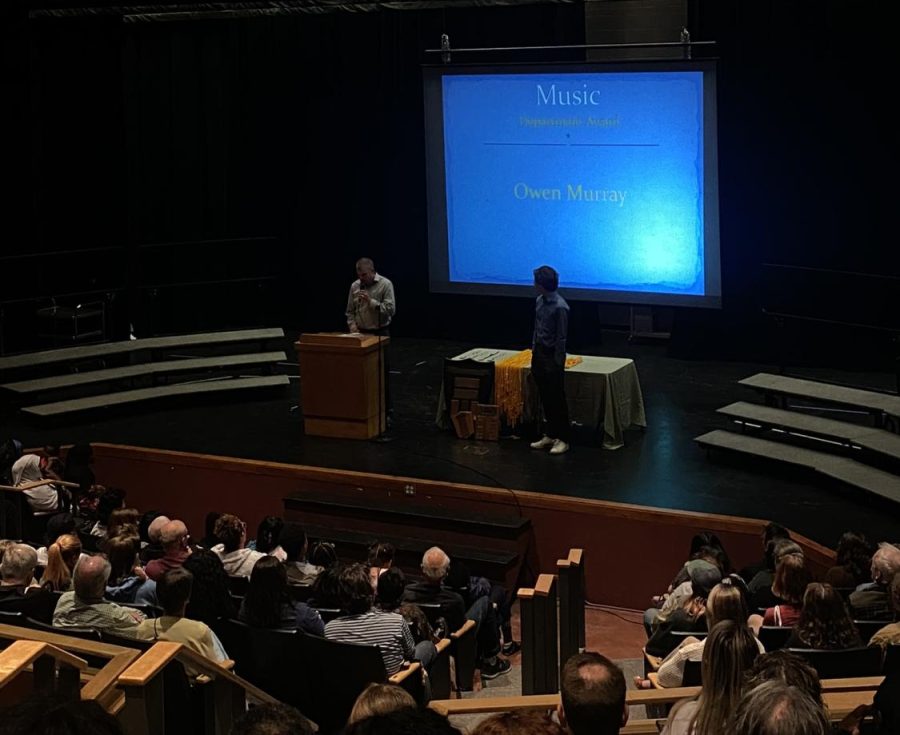Public Speaking: How Do We Teach It?
June 1, 2023
Almost every current or former high school student understands that feeling you get in the pit of your stomach upon presenting in front of the entire class. Your heart is racing and you’re counting down the minutes until this whole thing is over with. Most people who experience this type of stage-fright know that it’d be easier to show their expanse of knowledge through a non-speaking related project. Writing an essay is hard work, but it would not be as much stress as a speaking presentation. There are many creative outlets that students can use to show how intelligent they are, so why are students still opting to use public speaking as a grade?
Many news outlets (Washington Post, The Guardian, etc.) believe public speaking needs to be taught in school; in some cases even more heavily than it currently is. They argue about the importance of it being a life skill, and how it’s easier to learn this stuff while you’re young. While these points aren’t necessarily incorrect, some drawbacks are important to consider. Medium describes how it tends to favor certain types of people, saying, “By making public speaking mandatory in school, we could accidentally favor certain types of students while disadvantaging others that don’t have the right personalities to immediately take to public speaking.” Oftentime, pushing introverted personalities into situations where public speaking is mandatory does more harm than good.
Owen Murray, a senior at West Seattle, shares his thoughts about public speaking in schools. “I feel good about it,” Murray says. “It’s something I’ve struggled with in the past, but it’s something that came with being more comfortable with the people I’m speaking to.” Owen also described how he still gets a bit nervous if the group he is speaking to consists of people he doesn’t know quite as well. According to Owen, more practice allowed him to achieve more comfortability, but that was necessary in the school environment where it was part of many projects.
Being a teenager is certainly not the easiest job in the world, and many can attest to that. While public speaking may work for some, others find it to be too much pressure. Andrew Hartstone, a former high school student, says this on the topic, “It’s too much of a burden for students at a high school level, especially because of all the other stressors in their social lives.” Some students just aren’t the right type of crowd to get up in front of their peers and talk, and pushing them into something like that doesn’t always help them progress.
While I agree that certain life-paths require good public speaking skills, there needs to be more support for students who struggle with these kinds of presentations. Focusing said speaking project on a topic the students aren’t interested in is going to make them more nervous. However, I’ve seen many of my own peers (who had once been shy and reserved in class) light up while presenting about something they love. It was like the entire room faded away for them and that nervousness was quickly gone. Public speaking should not be banned within the education system, but there needs to be better ways of teaching it.





















